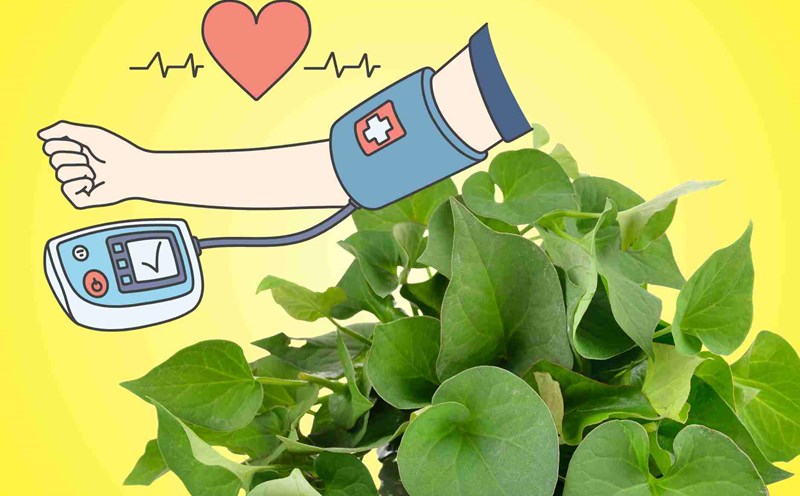A study published in hypertension, a journal of the American Heart Association, showed that people who consume enough magnesium daily have more stable blood pressure and a lower risk of cardiovascular disease than the magnesium deficiency group. Professor Penny Kris-Etherton, a nutritionist at Pennsylvania State University (USA) commented to Health: Magie acts as a natural muscle relaxant for blood vessels. When the body lacks magnesium, blood vessels tend to constrict, causing high blood pressure and affecting cardiovascular circulation".
Magnesium is not synthesized by the body but must be supplemented from food. According to the recommendation of the American Academy of Medicine (IOM), adults should supplement 310-420mg of magnesium per day, depending on gender and age. For people with high blood pressure or cardiovascular risk factors, experts recommend applying a diet rich in green vegetables, beans - nuts and whole grains to achieve natural magnesium without the need for supplements.
Here is a suggestion for a diet rich in magnesium in one day, designed according to the DASH (Dietary Approaches to Stop hypertension) principle, which is supported by the American Heart Association in drug-free blood pressure control:
Breakfast:
Oatmeal porridge is cooked with almond milk, chia seed topping and 1⁄2 banana.
Uncafeinated herbal tea.
Estimated magnesium intake: ~90mg.
Lunch:
Brown rice.
Kale, chickpea, olive oil and lemon salad.
Grilled salmon.
Magnesium: ~140mg.
Dinner:
Boiled pumpkin soup with lentils.
Broccoli stir-fried with olive oil.
Magnesium: ~120mg.
Day snacks:
10 almonds + 1 piece of ripe papaya or butter.
Magnesium: ~50mg.
In total, this menu provides about 400mg of magnesium - almost fully meeting daily needs. Professor Kris-Etherton notes that a diet high in magnesium also adds potassium and fiber, which helps reduce water retention and stabilize blood pressure more effectively than regular diets.
In addition to food, experts also emphasize the importance of reducing sodium (salt) and increasing physical activity in two factors that go hand in hand to prevent sudden increases in blood pressure. People with underlying diseases such as diabetes or kidney disease should consult a doctor before adjusting their diet.
Controlling blood pressure is not just a matter of medicine, but begins with the daily plate. And magnesium, a quiet but essential mineral, can be a simple key to helping you stabilize your blood pressure and protect your heart in the long term.











